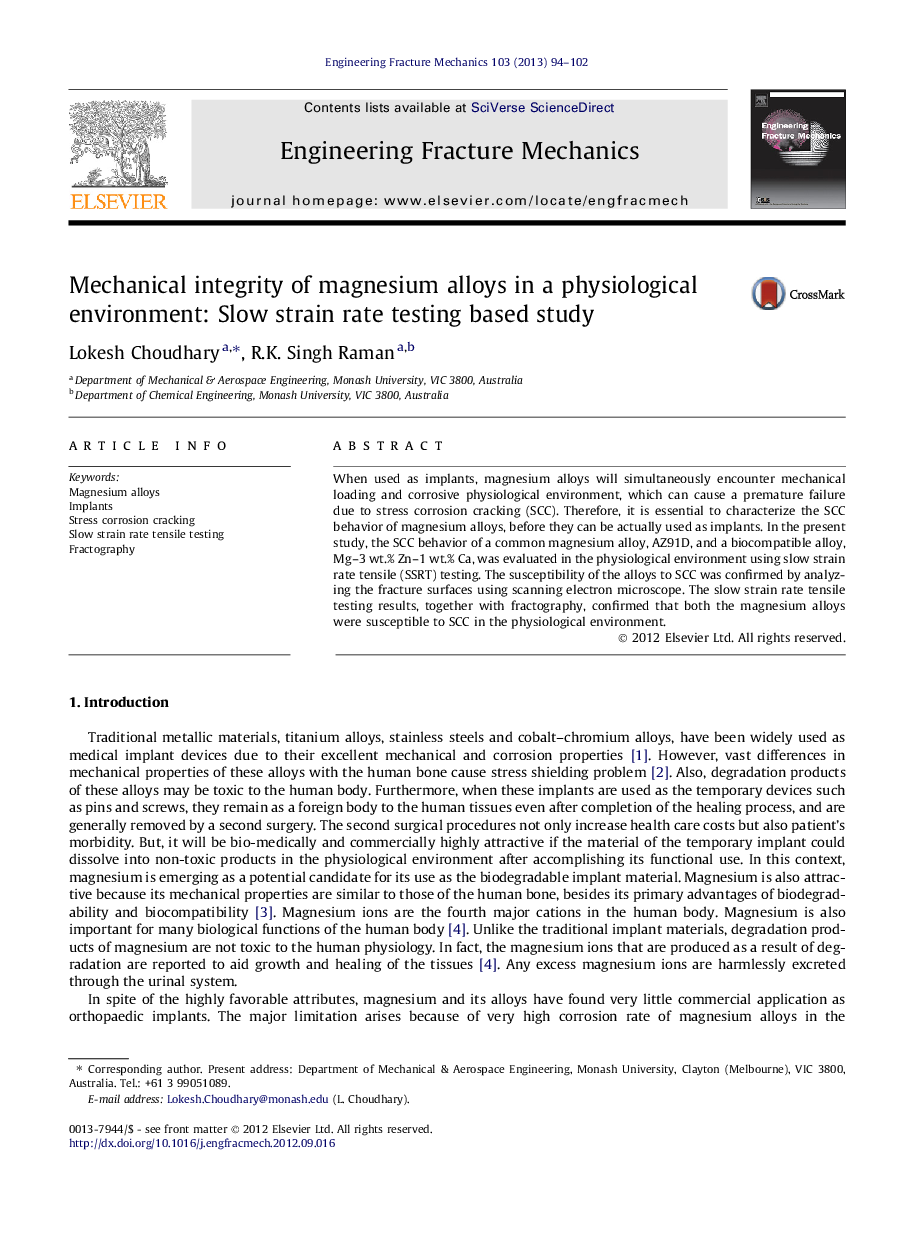| Article ID | Journal | Published Year | Pages | File Type |
|---|---|---|---|---|
| 770464 | Engineering Fracture Mechanics | 2013 | 9 Pages |
When used as implants, magnesium alloys will simultaneously encounter mechanical loading and corrosive physiological environment, which can cause a premature failure due to stress corrosion cracking (SCC). Therefore, it is essential to characterize the SCC behavior of magnesium alloys, before they can be actually used as implants. In the present study, the SCC behavior of a common magnesium alloy, AZ91D, and a biocompatible alloy, Mg–3 wt.% Zn–1 wt.% Ca, was evaluated in the physiological environment using slow strain rate tensile (SSRT) testing. The susceptibility of the alloys to SCC was confirmed by analyzing the fracture surfaces using scanning electron microscope. The slow strain rate tensile testing results, together with fractography, confirmed that both the magnesium alloys were susceptible to SCC in the physiological environment.
► Implants suffer SCC in body fluid, and hence this study on a new magnesium alloy. ► Bio-implant materials must be free from toxic constituents, e.g., Al. ► Al-free Mg3Zn1Ca alloy is more prone to SCC than a common Al-containing alloy, AZ91D.
